| French Revolution | Paris Commune | Utopianism | Political Science | Philosophy | Ethics | Political Economy | Natural Science | Soviet Science |
Marxists Internet Archive
—— Reference Section ——
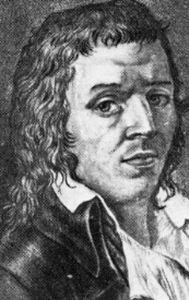
The French RevolutionThe leaders of the French Revolution were the first to develop modern social theory and laid the basis for the modern socialism. Rousseau traced the origins of inequality to private property, and Babeuf is credited with being the first Communist. The socialist ideas from the French Revolution are one of the sources of Marxism. | |
|
(1709-1751) 5+ Militant atheist. [Biography] (1712-1778) It has been said that the French Revolution, put Rousseau's philosophy into practice, in particular his idea of the Social Contract. Although he died 20 years before the Revolution, he was its principle theorist. [Biography] (1743-1793) 10+ Leader of the left wing of the Revolution, inspired the execution of royalist prisoners which launched the second, radical phase of the Revolution; his murder set off the Great Terror. [Biography] (1758-1794) 10+ Leader of the Jacobins and instigator of the Great Terror, Robespierre was the ultimate “moralist.” His overthrow marked the end of the radical phase of the Revolution. [Biography] |
(17??-1794) 5+ Priest who became a leader of the popular democratic Enragés during the French Revolution. He was renowned for the foul and abusive language of his journalism. [Biography] (1757-1794) 5+ Leader of the extreme left-wing during the Revolution and spokesperson of the sans coulottes. Hébert initiated a planned economy before his overthrow, after which the Revolution lost the support of the poor. (1723-1789) 5+ French materialist and atheistic philosopher. [Biography] (1760-1797) 5+ Rose to prominence in the twilight of the Revolution, convening a running public forum organising for more radical measures. He can be regarded as the first communist and an advocate of popular sovereignty and participatory democracy. [Biography] |
|
(1805-1881) 20+ Founder of the communist movement in the 1830s, he believed communism could be achieved by the dictatorship of a radical minority. He was immensely popular in France and elsewhere but spent most of his days in prison. [Biography]
Veteran of the Revolution of 1848 and a leader of the left-wing of the Paris Commune. [Biography] |
The Paris Commune
(1832-1885) 5+ Agitator, editor of Le Cri du Peuple. [Biography] (1831-1913) Journalist, deputy to Government of National Defence for Paris. [Biography] (1830-1905) Nurse, soldier, hero of the Commune and labour organiser. [Biography] |

Utopian SocialismVisions of a better society have been a concern of thinkers since ancient times, and a part of the critique of existing conditions. The speculations of the early 19th century Utopians are an important contribution to Marxism. Fourier and Owen in particular were much admired by Marx and Engels. | |
|
(1478-1535) Thomas More wrote Utopia in 1515, looking forward to a world of individual freedom and equality governed by Reason, at a time when such a vision was almost inconceivable. [Biography] (1611-1677) Common-Wealth of Oceana was based on universal land-ownership and was a militant republic dedicated to spreading its democratic system to the rest of the world. Cromwell banned it. [Biography] (17??-17??) Little is known of Morelly; Code of Nature was an attempt to provide a systematic philosophical justification of his communist ideas. [Biography] (1760-1825) French Utopian socialist who took part in War of Independence of the United States; opposed Deism and promoted the study of Nature. [Biography] |
(1772-1837) French Utopian socialist who criticised the bourgeois society established by the French Revolution. He promoted the role of environment and education in moulding personality. [Biography] (1771-1851) Welsh industrialist and social reformer; formed a model industrial community at New Lanark, Scotland, and pioneered cooperative societies. [Biography] (1788-1856) His followers, known as the Icarians, established ill-fated utopian communities in Illinois, Missouri, Iowa, and California. [Biography] ———— (1850-1898) American author, famous for his utopian novel set in the year 2000, Looking Backward, published in 1888. [Biography] |
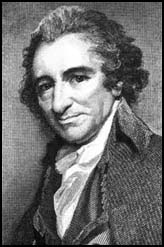
Foundations of Political ScienceThe history of political science is inseparable from the art of war and the problems of philosophy, and there is a long history to discussion of the problems of modern political theory. These writers are the pioneers of political science and revolutionary theory. | |
|
(c 420 BCE) Ancient Chinese philosopher, author of The Art of War, which sums up the wisdom of centuries of Chinese political experience. [Biography] (1469-1527) 15th century Italian civil servant who put in writing the political methods of Renaissance Europe. [Biography] (1588-1679) English philosopher and political theorist of the state. [Biography] (1609-1660) A leader of the True Levellers in the English Revolution of 1648. [Biography] (1632-1704) English Empiricist who was the main theorist of the development of bourgeois political institutions in Britain. [Biography]
|
(1737-1809) English democratic and atheist journalist who formulated the concepts of civil liberty behind the American War of Independence and the French Revolution. Author of The Rights of Man. [Biography] (1780-1831) Prussian military theorist admired by Marx, Engels and Lenin. [Biography] (1805-1859) French diplomat who studied the development of democratic forms of society in America. [Biography] (1812-1875) Leader of True Socialism, early associate of Marx. [Biography] (1842-1924) A leader of Tammany Hall, the corrupt local government group in 19th century New York. [Biography] |

PhilosophyThe Value_of_Knowledge archive includes classic works by over 140 writers from the Copernican Revolution up to the present time, centred on problems in the epistemology, the theory of knowledge. | |
|
(1561-1626) Founder of British Empiricism. [Biography] (1596-1650) Founder of French Rationalism. [Biography] (1713-1784) French materialist philosopher. [Biography] (1792-1822) English poet and revolutionary-atheist. [Biography] (1770-1831) 50+ The greatest philosopher of “German Idealism,” theorist of modern dialectics and the most important influence on Marx and Engels and essential to Marxism. [Biography]
|
(1798-1857) Founder of Positivism, an early advocate of the emancipation of women. [Biography] (1804-1872) German philosopher, materialist and atheist critic of Hegel, and an influence on the young Marx in the 1840s. [Biography] (18??-19??) Scottish Hegelian, translator. (1856-1925) British Hegelian, principal translator and advocate for Hegel in the English langauge. Later abandoned Hegelianism. [Biography] (1881-1968) American Hegelian, Cornell University. (1866-1952) Important Italian Hegelian and socialist philosopher, one of the early advocates of Marxism in Italy, but became a reformist. [Biography] (1864-1920) German sociologist and political economist best known for his thesis of the “Protestant Ethic”; an early proponent of positivist sociology and historiography, theorised “status order” rather than class. Regarded by many as the main alternative to Marx; developed the concept of “ideal types.” [Biography] |
Marxism and PhilosophyLiberation Epistemology(1934-2001) Recent Marxism (1960-2003) Ancient Dialectics (c. 500 BCE) The Tao Te Ching is one of the first and finest examples in human history of the dialectical method of reasoning, here used towards a moral end. [Biography]
|
Marxism and EthicsClassics of Ethics(1673-1998) (1724-1804) 10+ Founder of German Idealism whose works remain the foundations of secular Ethics. [Biography] ———— (1817-1862) American liberal and romantic writer. [Biography] (1844-1900) German ethicist and existentialist philosopher. [Biography] See Also: Robespierre, Simone de Beauvoir, Eugene Kamenka. |

Political EconomyPolitical Economy grew out of moral philosophy in the late 18th century as a new and distinct branch of science, dedicated to understanding how people can live. The critical study of the political economists absorbed much of Karl Marx's life. | |
|
(1723-1790) Originally a moral philosopher, became the greatest of the British political economists; first to develop a labour theory of value. [Biography] (1766-1834) British political economists who theorised economic basis for development of society, and infamous for his reactionary theory of population. [Biography] (1806-1873) Contemporary and opponent of Karl Marx, English liberal theorist, early positivist and a Utilitarian in ethics. [Biography] Classics of Political Economy 1673-1936 Marxist Political Economy 1887-1995 |
(1856-1915) American management theorist who invented “scientific management.” [Biography] (1858-1940) 15+ English, socialist economist who was a major theorist of imperialism, was somewhat of a centrist in politics. [Biography] (1883-1946) British political economist who developed the theory of the welfare state & macroeconomic control of unemployment by public spending. [Biography]
|

Natural ScienceMarxists have always taken a keen interest in the development of the natural and social sciences and the philosophical problems arising out of science. Even scientists who have had conservative political views have contributed to revolutionary ideas. | |
|
(1809-1882) English biologist who formulated the idea of evolution of species by natural selection. [Biography] (1818-1881) Anthropologist who formulated the idea of development of human society through definite stages corresponding to evolution of the forces of production. [Biography] (1856-1939) Psychologist, founder of psychoanalysis. [Biography] |
(1879-1955) Discoverer of Theory of Relativity and the Quantum nature of energy; devoted his life to fight for peace and world government. [Biography] Foundations of Mathematics (1911-1950) Epistemology & Modern Physics (1925-1958) Classics in Psychology (1874-1989) |
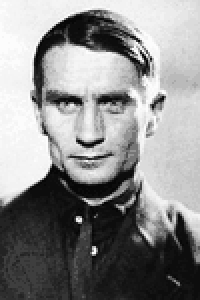
Soviet Philosophers and ScientistsWriters – scientists, philosophers, teachers – in the Soviet Union were obliged to develop their ideas in terms of the official orthodox Marxist dogma. Most of these writers cannot properly be described as Marxists, but nevertheless their work has contributed in some way or another to our understanding of Marxism. | |
|
(1855-1935) Soviet scientist who carried out groundbreaking research in genetics. [Biography] (1874-1949) Architect of Soviet Health System. [Biography] See Also: Soviet Marxists. |
(1888-1939) Soviet educationalist who promoted development of virtues of discipline and collectivism. [Biography] (1898-1976) Promoted theory of inheritance of acquired characteristics as the official Communist Party line in biology. [Biography] |
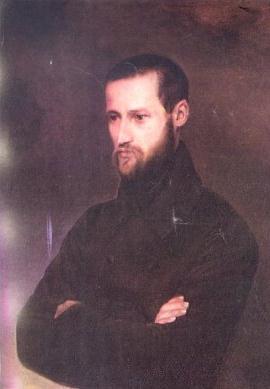 “it is my duty as a proletarian, deprived of all the rights of the city, to reject the competence of a court where only the privileged classes who are not my peers sit in judgment over me”
“it is my duty as a proletarian, deprived of all the rights of the city, to reject the competence of a court where only the privileged classes who are not my peers sit in judgment over me”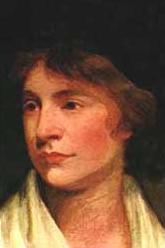 “In tracing the causes that have degraded woman, I have confined my observations to such as universally act upon the morals and manners of the whole sex, ... I only contend that the men who have been placed in similar situations have acquired a similar character.”
“In tracing the causes that have degraded woman, I have confined my observations to such as universally act upon the morals and manners of the whole sex, ... I only contend that the men who have been placed in similar situations have acquired a similar character.”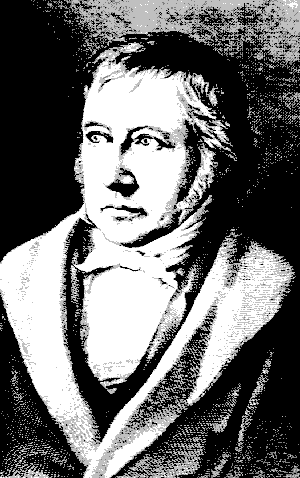 “The history of philosophy deals not with a past, but with an eternal and veritable present: and resembles not a museum of the aberrations of the human intellect, but a Pantheon of godlike figures, one after another in dialectical development.”
“The history of philosophy deals not with a past, but with an eternal and veritable present: and resembles not a museum of the aberrations of the human intellect, but a Pantheon of godlike figures, one after another in dialectical development.”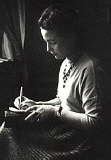 “Humanity is male and man defines woman not in herself but as relative to him; she is not regarded as an autonomous being.”
“Humanity is male and man defines woman not in herself but as relative to him; she is not regarded as an autonomous being.”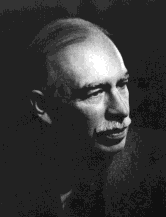 “The effect of combination on the part of a group of workers is to protect their relative real wage. The general level of real wages depends on the other forces of the economic system.”
“The effect of combination on the part of a group of workers is to protect their relative real wage. The general level of real wages depends on the other forces of the economic system.”